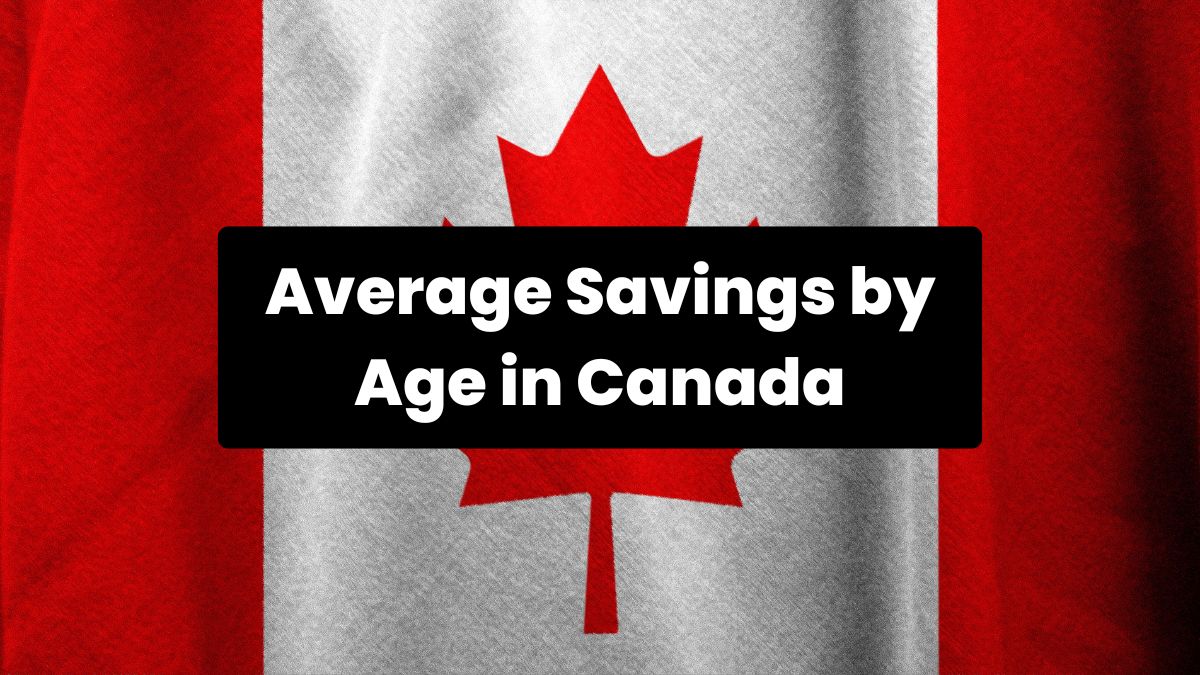Average Savings by Age in Canada – This article provides information on the Average Savings by Age in Canada: Average Savings for Young, Adult, and Senate Members. Saving money and sticking to a budget is stressful, especially with the current rising costs, crisis, and cost of living. Everyone should save for their future and retirement. Savings, however, are essential to reaching your financial goals, whether they are for emergency funds, retirement, or down payments. Continuing reading this article, you will find out about the Average Savings by Age in Canada, how to start saving, average saving, and more.
Average Savings by Age in Canada
Saving money is easy to say yes to, but most people are seen with mortgages, student loans, and other expenses. Everyone knows that you need to set money aside for your fortune and retirement. With rising inflation making saving a hard task, individuals who are planning for retirement can seem overwhelming even if they don’t know where to start.
It is possible to find out how much money the individual needs to save from the age at which they are currently in Canada by looking at the average savings by age in Canada. As most people aren’t working towards their financial goals, they aren’t sure where to start. Every individual has unique goals, savings, expenses, and income, so your average income will depend on when you start and what you earn.
It is important to understand the concept of time valuation of money when saving, which can be seen in RRSPs, TFSAs, or any other investment portfolio. To save, you need to determine whether your investment will grow significantly over time. From an early age, people should start saving.
Canada People Average Savings by Age should be at least this much.
| Average Savings by Age | Registered Retirement Savings Plan | Tax-Free Savings Account | Bank Account | A total sum of savings |
| Under the age of 35 years | Around 9,905 CAD | 8,395 CAD | 10,720 CAD | 29,020 CAD |
| Age between 35 to 44 years | 15,993 CAD | 3,995 CAD | 7,163 CAD | 27,151 CAD |
| Age between 45 to 54 years | 41,998 CAD | 4,806 CAD | 8,951 CAD | 55,755 CAD |
| Age between 55 to 64 years | 91,941 CAD | 13,199 CAD | 21,036 CAD | 126,176 CAD |
| Age 65 and older | 146,782 CAD | 38,115 CAD | 74,328 CAD | 259,225 CAD |
Between the ages of 35 and 44, there is a bit of difference from the 25 to 34 age group. This is because the individual has a larger responsibility for family and household during this time.
Young, Adults, and Senates’ average savings
The average savings for the futuristic requirement can be difficult to figure out for some individuals. It may be easier for you to know what your average savings should be between the ages of a young, an adult, and a senator if you review your retirement objectives every three years.
When individuals begin saving after graduation at a young age. If something happens, you should build a good credit score and create an emergency fund with enough money to cover all your expenses for the next six months. Your gross income should be saved at least 15% if you are employed.
A tax-advantaged savings account is the best way to begin saving during your 30s to 40s, because it will reduce your income while providing withdrawals. In the 40s, you are usually at your peak age, where you can get salary increases, bonuses, and other benefits to boost your savings. So, you should take the help of the financial advisor with your specific goals and options here.
When you are in your 50s-60s, you are approaching retirement, and the best way to save during this time is to manage your investment with adequate resources and support, and keep those savings uncertain until you leave your job.
As everyone needs to have some savings at retirement, there is no other way to earn enough money to support oneself after retirement. So you should keep some of the money in a safe place according to your needs.
Average Savings by Age in Canada 2024
Average Savings by Age in Canada 2024 – Saving money is crucial for long-term success and financial security, especially in today’s world where living costs are constantly rising. Individuals can use the average savings in Canada by age as a benchmark when planning their finances. If you are just starting out, at the peak of your earning potential, or approaching retirement, it’s essential to consider your savings strategy. Young adults should build an emergency fund and maintain good credit, while those in their 30s and 40s should take advantage of tax-advantaged accounts. Investing closely and seeking professional financial advice as retirement approaches are essential to ensuring you have the resources you require. Ultimately, it is crucial to develop consistent saving habits, tailored to your life stage, if you wish to ensure a comfortable and secure future.









